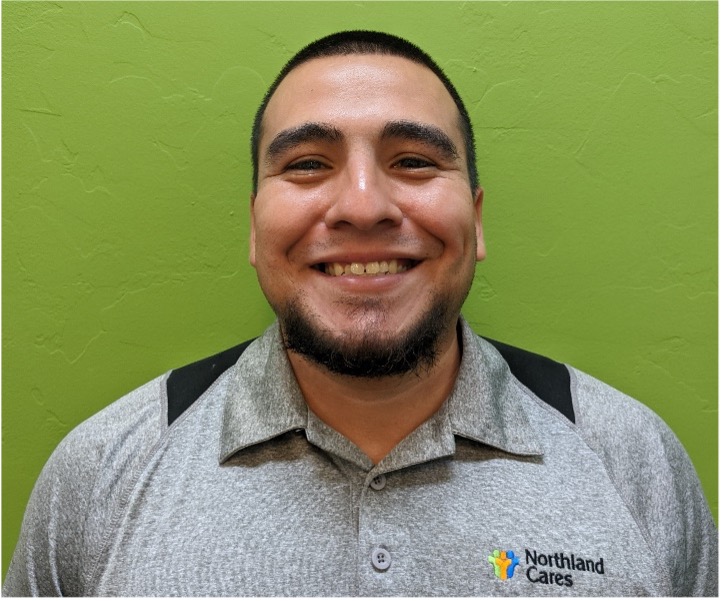An account is required to join the Society, renew annual memberships online, register for the Annual Meeting, and access the journals Practicing Anthropology and Human Organization
- Hello Guest!|Log In | Register
Applying Anthropology to HIV/AIDS Care
 Johnny Martinez is the Executive Director for Northland Cares, an HIV specialty care clinic located in Prescott, AZ. Interview questions prepared by Caroline Mende.
Johnny Martinez is the Executive Director for Northland Cares, an HIV specialty care clinic located in Prescott, AZ. Interview questions prepared by Caroline Mende.
What did you study at Northern Arizona University? What year did you graduate?
I graduated with my BA and MA from NAU. I received my Bachelor of Arts in Cultural Anthropology in 2014 and my Master of Arts in Applied Socio-Cultural Anthropology in 2016.
What do you do as the Executive Director for Northland Cares?
Northland Cares provides a full range of outpatient services for people living with HIV/AIDS and prevention services for those at risk for HIV in northern Arizona. As the Executive Director I am responsible for ensuring the mission of Northland Cares is carried out through staffing, provision of services, reporting, and maintenance of appropriate funding for all activities. I am also responsible for healthcare administration and nonprofit management of the organization, including grant writing, contract management, regulatory compliance, fundraising, marketing, public relations, program development, strategic planning, human resources, budgeting and finance, quality management and communications. Additionally, I represent the organization to government agencies as well as to the community and the public. I establish new and maintain current development resources that will identify and cultivate funding to grow and sustain the organization. Lastly, I collaborate with the Medical Director on the appropriate care and service provided to clients with HIV/AIDS, compliance with grant funding for all services, and Clinical Quality Management.
What do you like most about your work? How has your background in anthropology helped you in your career?
What I have learned about leadership is that you have an opportunity to drive and effect the direction of change, but my favorite part of this job is doing so within a team setting. Even though change can come by one person, it is even more effective when you have a group of people working towards a similar goal. I have found that my background in anthropology has prepared me for this task. Throughout my graduate and undergraduate work, my professors always pushed collaboration. Collaboration with community partners, fellow colleagues, experts, and more. Anthropology has helped me understand that change can be brought about by a singular person, but it is usually through a shared vision of what that change needs to be. Use the resources around you. Listen to all the voices and opinions.
What insights can you provide for anthropology students?
My best advice to anthropology students looking to build a career is learn how to sell yourself. You are your own best advocate. I still hear the same question when discussing my background and it is either “what is that” or “so you dig up dinosaurs.” Learn how to discuss what anthropology has done for you. Be ready to explain what skills you can bring to any field that you have gained through your studies. As an anthropologist I learned about ethnographies and the study of different cultures. But I learned how to interview, how to produce qualitative and quantitative data, how to be objective and how to work with a diverse range of individuals with different life experiences and backgrounds. Show the world what you can do, just be ready to explain how you are going to do it.

Cart
Search